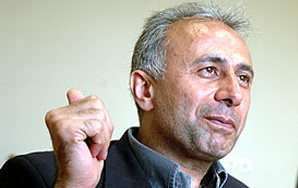Enhancement of Iran's position and the Concerns of the US

America's approach in relation to regional developments is based on the crisis management theory. A feature of that is that the pattern of crisis management decisions are tactical.
The main issue for the US is how the developments in the Middle East will affect the Islamism trend in the region. If the developments lead to the emergence of liberal, secular and non-identity-oriented governments, the US will be provided with a favorable context. Because of the current social climate, the mentality and perception of many citizens of the Middle East and North Africa is cynical about the US, and the people in the region consider the US a supporter of authoritarian regimes. The Arab countries’ people regard the US as state that supports the regional hegemony of Israel in the Middle East.
So, the US is at a crossroads, where whether its orientation in relation to Israel can undergo fundamental change, or whether it must change its orientation toward the authoritarian states in the Middle East. The US has chosen the second option. The main argument is that US manages the Middle East developments in a way that firstly the identity-seeking groups have fewer choices, and secondly the changes are not intensified. For example, in Egypt and Tunisia, the changes were made in the political elite structure, but none in political structure.
The Americans are trying to manipulate the people in these countries without supporting any fundamental changes in political structures, and to manage the developments in this manner. Thus, the political atmosphere of the ME is so uncertain that US interests lead to ambiguity. As isi evident, security issues and regional crises always face uncertainty. When the future is uncertain, a transition leads to crisis and security issues. So the main issue for Americans is to control the fundamentalist and identity-seeking trends in the Middle East in a way that it courses an exportation of social change and social revolutions in the Middle East, without any changes in the political structure of these countries.
It should be noted that the substitution of political leaders and the political elite is followed by structural consequences. Therefore, whether the US likes it or not, the identity-oriented trend in the Middle East follows the obtaining the lost rights. The social protests will continue, and it is natural that this matter threatens US interests and Israeli hegemony in the region.
It is understandable why the US worries about whether the situation can improve Iran’s position in the Middle East, because Iran does not accept the power relations in the Middle East- power relations based on power-oriented political systems, US hegemony, and Israel's seeking regional supremacy are not acceptable to Iran.
Social resistance groups, i.e. the collective organized social revolutions and movements in the Middle East, seek a utopia. The movements in the twenty-first century should be considered utopian ones, and urban movements cannot be expropriated through political action and the agitation of rebel militant groups.

